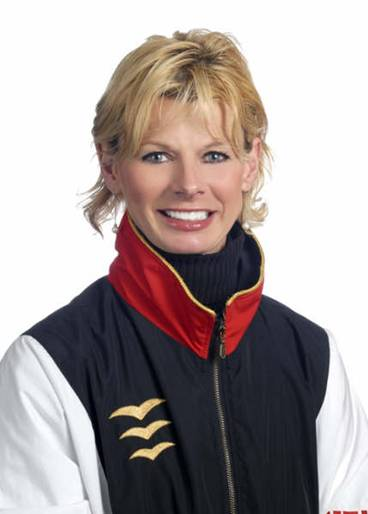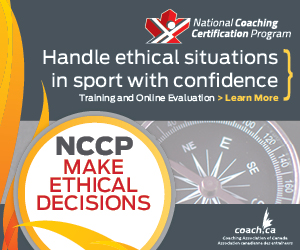 Michelle Leigh and figure skating are synonymous. Think of one, and the other immediately comes to mind. It’s been that way since she fell in love with the sport as a five-year-old, attracted above all by jumping and performing. Serious training began at the age of eight and before long she was a national competitor, winning the Novice bronze medal in 1977. In 1979, a badly ruptured Achilles tendon at the age of 16 abruptly ended her promising career.
Michelle Leigh and figure skating are synonymous. Think of one, and the other immediately comes to mind. It’s been that way since she fell in love with the sport as a five-year-old, attracted above all by jumping and performing. Serious training began at the age of eight and before long she was a national competitor, winning the Novice bronze medal in 1977. In 1979, a badly ruptured Achilles tendon at the age of 16 abruptly ended her promising career.
A brilliant student, Leigh had her pick of universities before settling on the University of Toronto’s science program in 1980. Simultaneously, her tendon repaired, the seventeen-year-old began to coach on weekends at the Orillia Skating Club and Mariposa School of Skating. By season’s end, she decided to forego university and coach full-time. “I got the bug, loved helping people and everything that coaching stands for.” Today she is a National Coaching Certification Program (NCCP) Level 5 certified coach with three Olympic Games — Albertville 1992, Nagano 1998, and Salt Lake City 2002 — and 14 world championships listed on her resumé. Star pupils include Elvis Stojko, Takeshi Honda, and Jennifer Robinson.
Leigh’s off-ice credits are equally impressive. She serves on the Coaching Association of Canada’s (CAC) Coaching Effectiveness Steering Committee, Skate Canada’s Long-term Athlete Development Steering Committee and its National Coaching Mentoring Program, the Canada Games board of directors, and is an NCCP presenter and popular speaker. Her love of jumping continues, and she has become a world expert in Dartfish, a sophisticated computer analysis program that allows her to break down and measure motion frame by frame. “Dartfish has had a direct impact on my coaching; it’s good for anything with a technical component, and that definitely includes jumps.”
Leigh embarked on a coach education path in order to coach at the Olympic Games, first through Skate Canada courses and then the NCCP. “Learning became important for self-development and it was very much about my personal interest. It has taken years, but completing Level 5 is gratifying. And CAC Women in Coaching grants enabled me to finance travel for two Level 5 Tasks and two Dartfish courses.”
A committed mentor, Leigh guides coaches who bring their skaters to her training venue. “The coaches watch my lessons and then take those lessons home, so both coach and skater are learning.” She is also part of a Skate Canada initiative focused on the NCCP Task, “Strategies and Tactics”. Held to date at several national championships, the 2011 Grand Prix Final in Quebec City, and the 2013 world championships, the initiative provides a unique opportunity for international coaches to share their experiences, strategies, and knowledge. The participating coaches — in 2013 over 100 coaches applied for 30 positions — also attend practices in order to observe the experts at work.
The years have not dimmed Leigh’s passion for coaching. “Coaching is a gift; it’s making a difference in someone’s life. As a job, it doesn’t get any better than this. I treasure how much coaching means to the people I help and how gratifying it has been for me. “
By Sheila Robertson
Note: Leigh was awarded the Queen Elizabeth Diamond Jubilee Medal in 2012, recognizing her outstanding contribution to the sport of figure skating.

